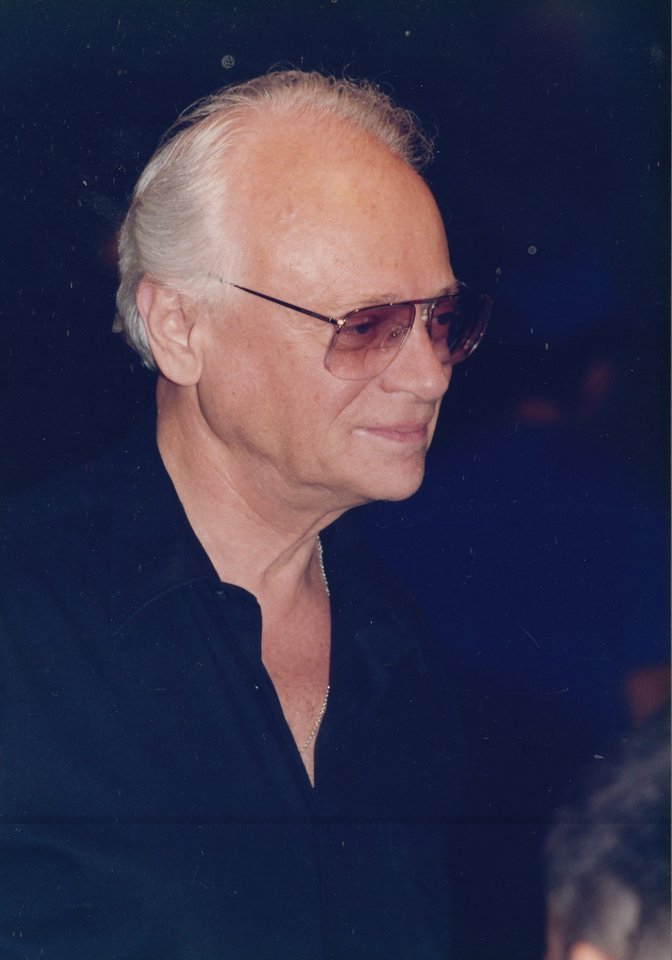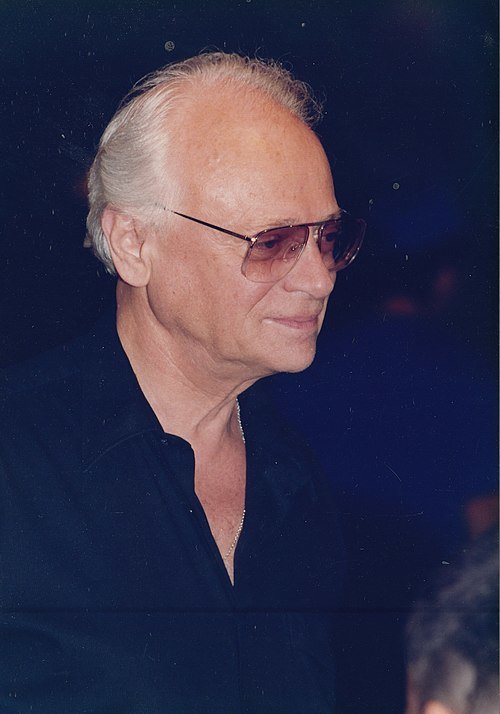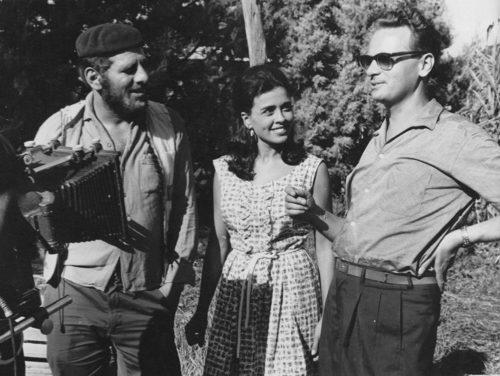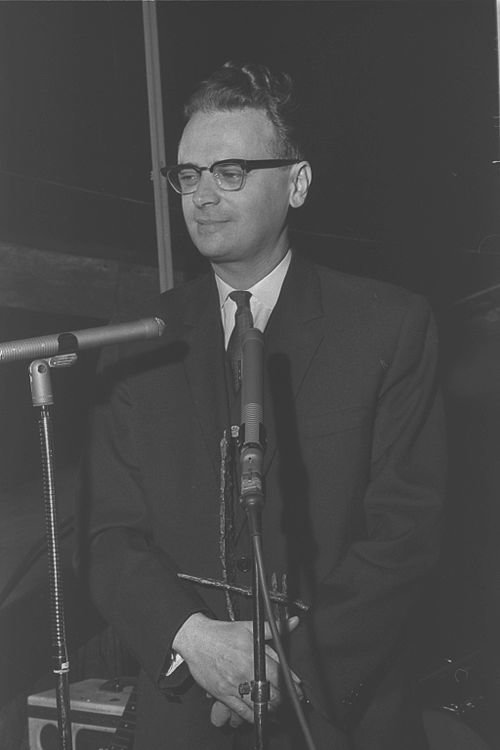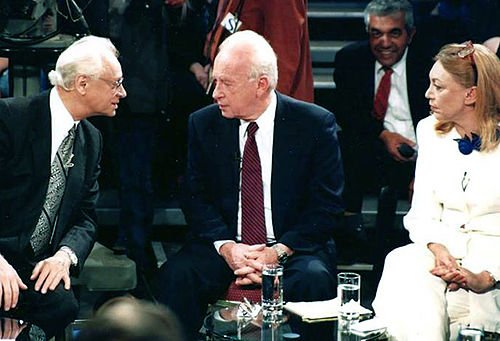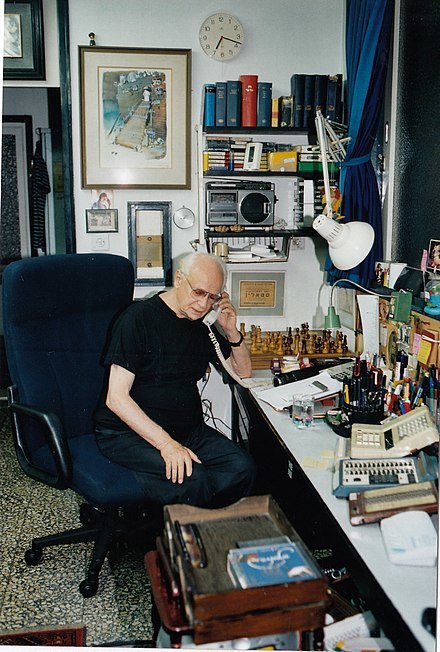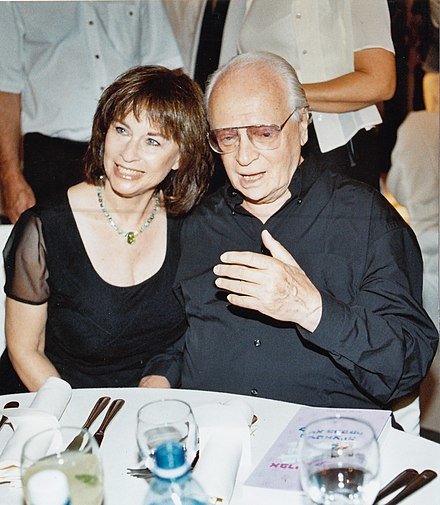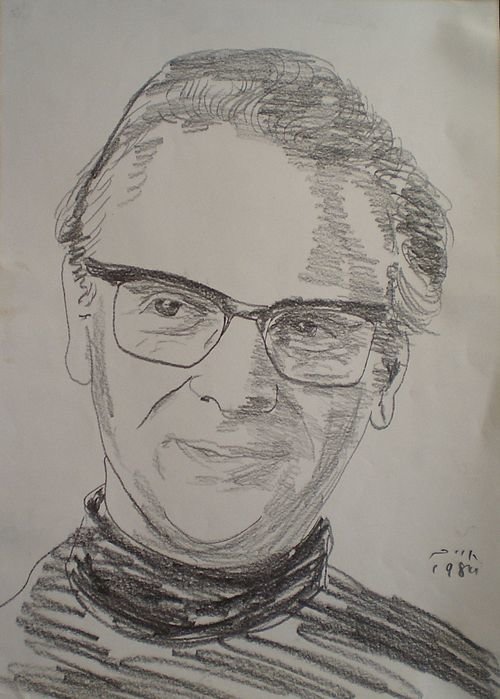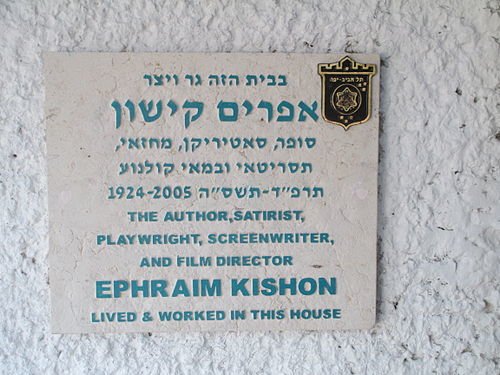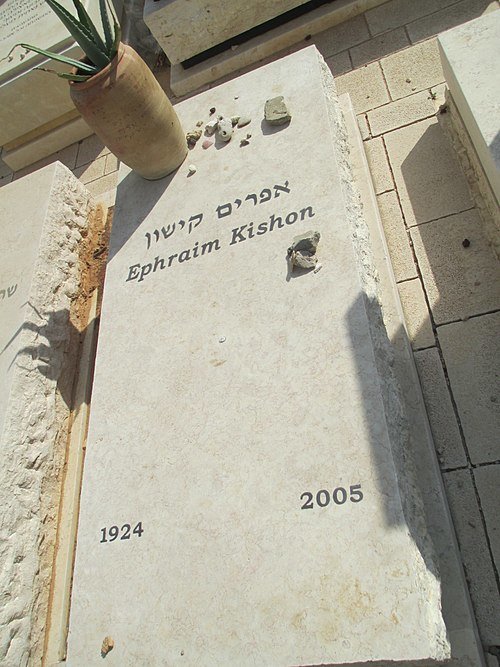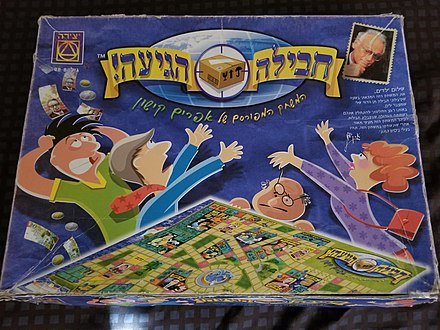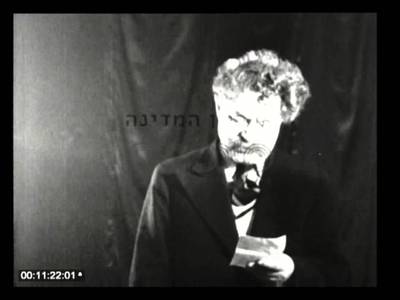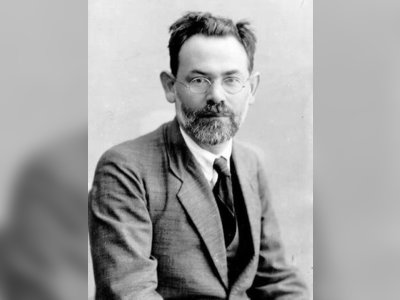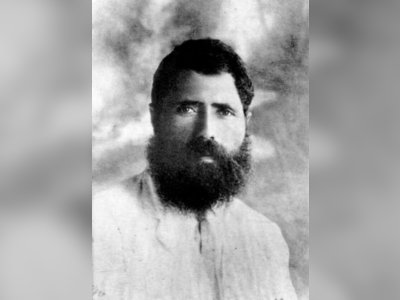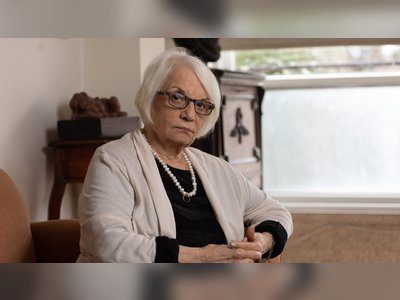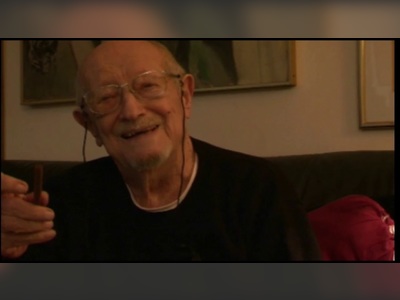מורשת גדולי האומה
בזכותם קיים
beta
Ephraim Kishon: The Multifaceted Israeli Creative Genius
Ephraim Kishon, born on August 23, 1924, in Budapest, Hungary, under the name Ferenc Hoffmann (later changed to Ferenc Kishont), was a prolific Israeli writer, satirist, playwright, screenwriter, journalist, humorist, columnist, painter, and film and theater director. He was a recipient of the prestigious Israel Prize. Kishon, one of the most renowned Israeli satirists and directors globally, made history as the first Israeli director to have a film nominated for an Oscar and the first Israeli to win a Golden Globe for his directed films.
Early Years and World War II
Ephraim Kishon was born into a middle-class Jewish family in Budapest. His father worked as a bank manager, while his mother was a secretary. Kishon had a sister, Agnes Kishon Karcsonyi. He received no religious education, and his Bar Mitzvah was conducted in Latin characters as he was not acquainted with traditional Jewish customs.
Kishon's talent for writing became evident in his youth. In 1940, he won the first prize in a high school novella writing competition. Due to the anti-Jewish laws in Hungary, particularly the Second and Third Jewish Laws, Kishon was unable to continue his studies at the university. Consequently, in 1942, he began vocational studies. In 1944, he was conscripted into forced labor and sent to a camp in Nováky, which was in territory occupied by Slovakia. He managed to escape with a group of friends. Kishon returned to Budapest and lived in hiding. In a television program called "Such Lives," he revealed that he owed his life to a man who taught him how to forge official stamps graphically using a regular pen and provided for his needs in hiding. During one of the death marches in Budapest-Dachau (Autumn 1944), he played dead in the middle of the road, which likely saved his life. When he reached Budapest, he took refuge in a basement along the front line between the Russian and German forces, where he stayed for an extended period, surviving on scavenged vegetables that damaged his intestines irreversibly. After Budapest was liberated, he was forced into labor by the Red Army. After the war, he learned that his parents and sister had survived, but many other family members had perished in Auschwitz gas chambers.
In 1948, Kishon completed his studies in metalwork and delved into the history of art. He began publishing humorous articles, including in the satirical weekly "Lódai Napló," which started in Budapest in 1945 under the name Ferenc Kishont (Kishont - a diminutive form of 'Kish,' meaning 'small'). In May 1949, he left Hungary with his first wife, Eva Klamer, aboard the ship "Galila" and immigrated to Israel. It was during his immigration process that he received the Hebrew name "Ephraim" from an official of the Jewish Agency who did not recognize the name "Ferenc" and recorded it as "Ephraim," which later became his official Hebrew name.
Early Life in Israel
Initially, Kishon resided in the Ma'abarot (transit camps) near Haifa, sharing a small apartment with a large Moroccan family. Afterward, he moved to Kibbutz Kfar HaHoresh, where he worked as a blacksmith and utilized his free time to learn Hebrew with the help of his neighbor, Yosef Bilitzur. He acquired the language by painstakingly copying every word from Yehuda Gor's Hebrew dictionary by hand. During this period, he wrote humorous lists in Hungarian for the newspaper "Oi Kádár." He eventually relocated to a communal settlement while riding his beloved motorcycle, affectionately nicknamed "the doctor" (in reference to the Nazi criminal Dr. Ernst Kaltenbrunner, as the motorcycle was black, reminiscent of pre-war Nazis). He learned Hebrew at the Ulpan "Atzion" in Jerusalem and quickly mastered the language, initiating new creative endeavors. His thick Hungarian accent remained with him throughout his life.
Early Journalism Career in Israel
Kishon embarked on his career in Israeli journalism in 1951 by writing satirical columns for the Hebrew daily newspaper "Omer" and later for "Davar," where he published a satire titled "Fable About a Hill in Tel Aviv." This story served as the basis for the script of the play "Hill in Neutral" (Davar was the daily newspaper of the Histadrut, and it had a significant influence during that period). In the same year, his first book was published in Israel, titled "The Honeymooners," originally written in Hungarian and translated into Hebrew by Avigdor Hameiri. The book's title reflected its content, focusing mainly on the experiences of new immigrants. In 1952, Kishon started a regular satirical column called "Chad Gadya" in the newspaper "Maariv." He continued writing in the column for nearly thirty years, publishing almost daily during the first twenty years.
In a few short years, Kishon became one of the most prominent humorists and satirists in Israel. His first play, "His Name Shall Go Before Him," premiered at the Bimah Theater in 1953. Following its success, Kishon wrote several successful plays, including "Black on White" (1956) addressing racism, "The Contract" (1959) exploring marital life and relationships, "Not a Word to Morgenstern" (1960) satirizing the wonders of Israeli bureaucracy, "He and She" (1961), a sketch with Arik Lavie and Shoshik Shani, "Take off the Scarf, the Water Is Boiling" (1968) scrutinizing modern art and the world of art criticism, and "Ho, Ho, Juliet," a whimsical play attempting to predict the fate of Romeo and Juliet had they not taken their own lives. In addition to these, he wrote an extensive list of sketches performed by the Matate Theater (in the program 'Are You Telling Me?' in 1954), the Duvdevani-Duhrmann Theater (in the program 'Shalom Shalom' in 1955), the Nahal troupe, and Bezel Yarok Theater. During this period, Kishon also achieved his first significant international success when "The New York Times" chose his book "Blessed Is the Matchmaker" as its Book of the Month in 1959.
The 1960s and Late 1970s
In early 1964, a competition for proficiency in Ephraim Kishon's writings was held in Israel. Dozens of participants took part in the initial test, with the final competition broadcast on the show 'Tovim HaShnayim' on Kol Israel (with hosts Yitzhak Shimon and Mordechai Friedman, and Kishon serving as a judge). The winner, Gideon Ron, was crowned as the "Champion of Ephraim Kishon's Writings."
Kishon expanded his creative horizons in the early 1960s, venturing into the realm of cinema. His first foray into film was as the writer and director of "Sallah Shabati" (1964), a satirical comedy about an immigrant family's struggles in Israel. The film was a massive success and was nominated for an Academy Award for Best Foreign Language Film, making Kishon the first Israeli director to receive such recognition. "Sallah Shabati" won the Golden Globe Award for Best Foreign Language Film in 1965. The film's success catapulted Kishon into the international spotlight and paved the way for his subsequent film career.
Following the success of "Sallah Shabati," Kishon continued to write and direct a series of successful Israeli films, many of which explored the quirks and challenges of Israeli society. Some notable films from this period include "The Policeman" (1971), "Blaumilch Canal" (1971), and "The Fox in the Chicken Coop" (1978). These films cemented Kishon's status as a leading filmmaker in Israel and gained recognition worldwide.
Later Life and Legacy
In the late 1970s and throughout the 1980s, Kishon continued to work on various creative projects, including films, plays, and books. Some of his notable works from this period include "The Big Dig" (1978), "Charlie Ve'hetzi" (1983), "The Farewell Party" (2014), and "The Car Thief" (1986). Kishon's films often blended humor with social commentary, and his unique satirical style resonated with audiences both in Israel and abroad.
In addition to his work in film and theater, Kishon continued to write columns and essays for various publications, sharing his wit and insights on a wide range of topics. His writings covered everything from politics and society to relationships and everyday life.
Ephraim Kishon's contributions to Israeli culture were widely celebrated, and he received numerous awards and honors throughout his career. In 2002, he was awarded the Israel Prize for Lifetime Achievement in the field of entertainment and journalism. Kishon's works have been translated into multiple languages and have been enjoyed by audiences around the world.
Tragically, Ephraim Kishon passed away on January 29, 2005, in Switzerland, at the age of 80. He left behind a rich and enduring legacy as a multifaceted creative genius who used humor and satire to shed light on the complexities of life in Israel and beyond. His works continue to be celebrated and cherished by readers, viewers, and theatergoers worldwide, making him one of the most beloved and influential figures in Israeli culture and entertainment history.
- אפרים קישון – ויקיפדיהhe.wikipedia.org
